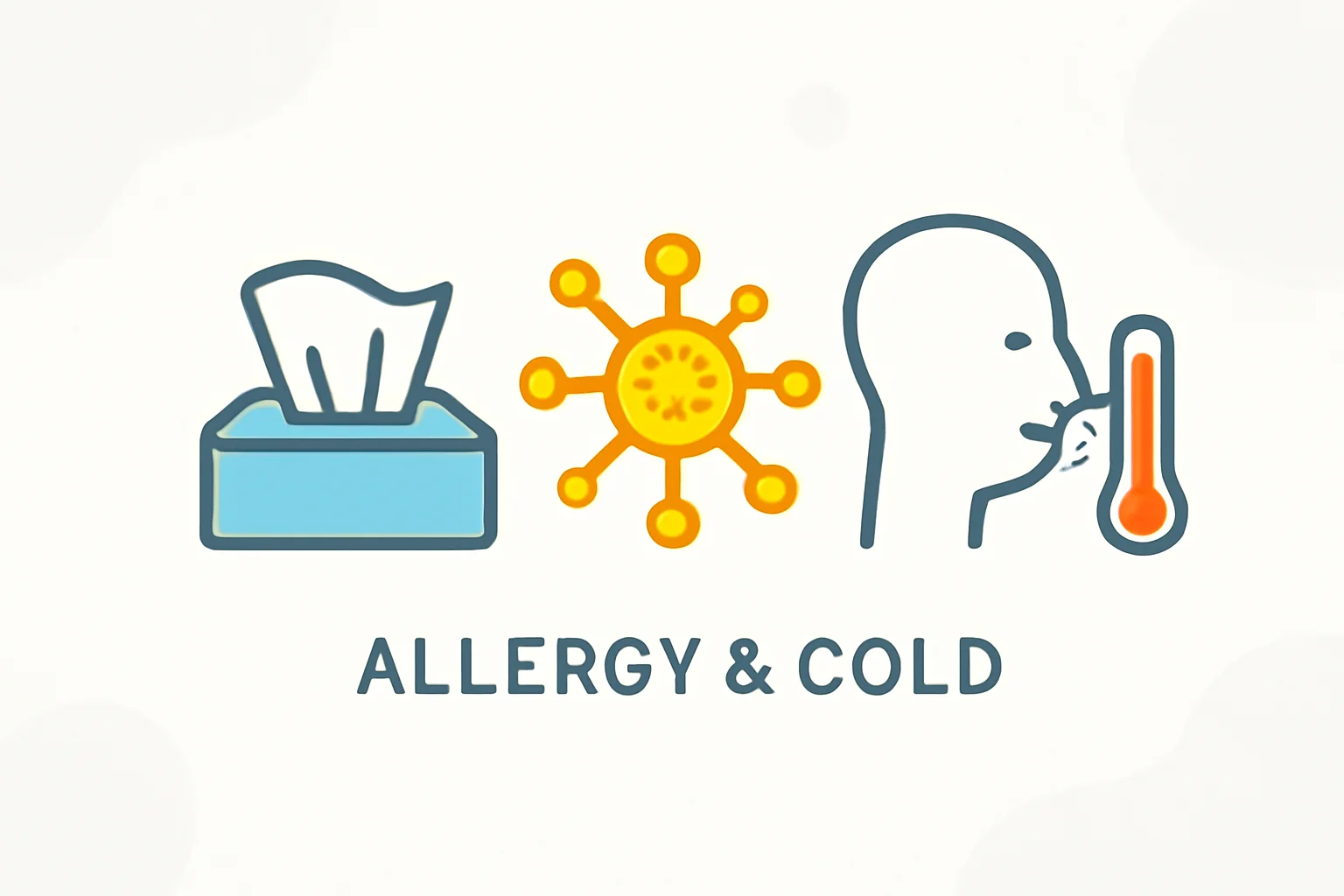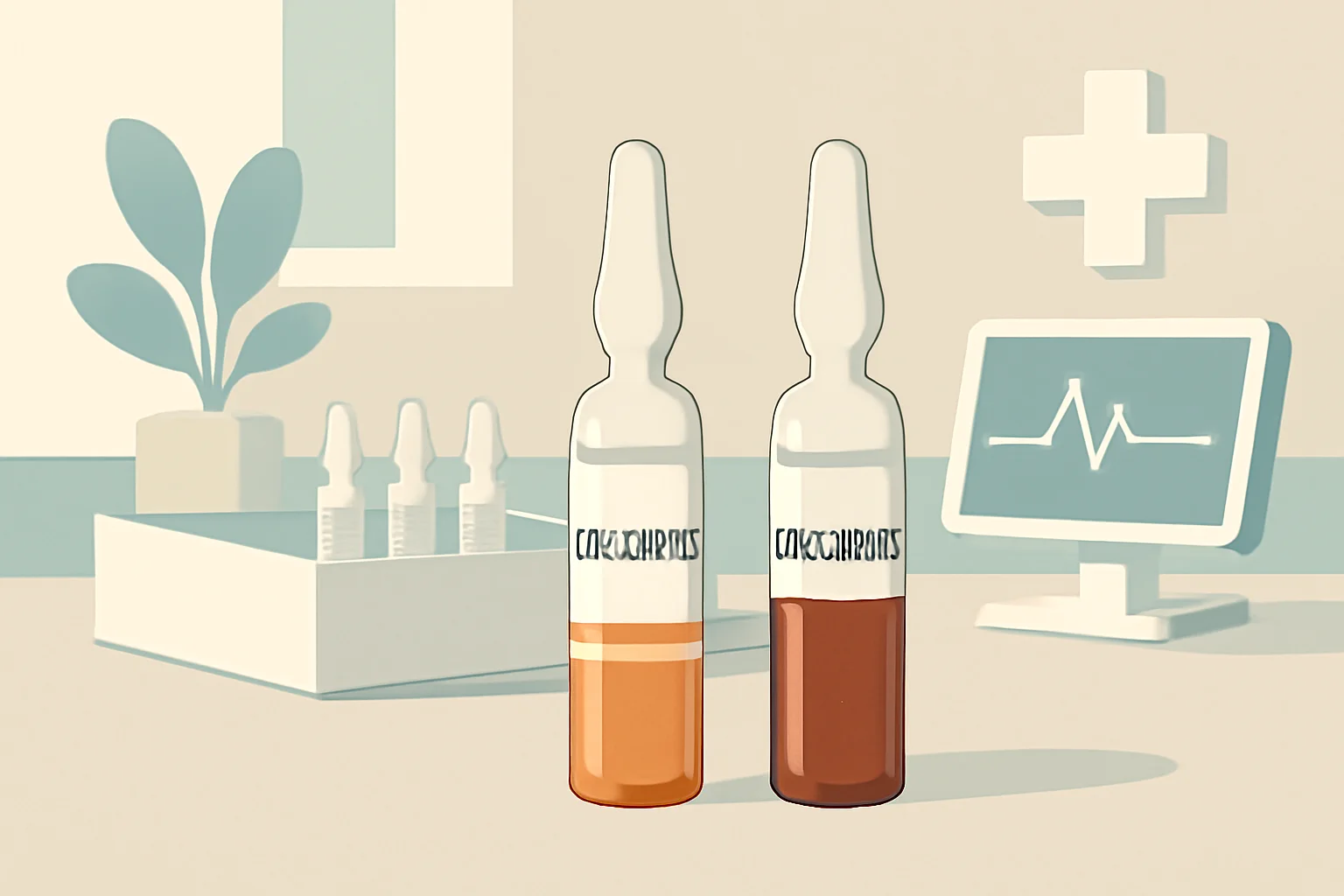
Allergy or Cold? How to Distinguish Between Them?
A spring months bring about various symptoms that many find bothersome and uncomfortable. These symptoms can often be the result of allergic reactions or colds. Allergy and cold can exhibit similar signs, such as nasal congestion, sneezing, coughing, or even headaches. However, the underlying causes and treatment methods are fundamentally different.
A cold typically develops as a result of a viral infection that spreads easily, especially in enclosed spaces where people are close to one another. In contrast, allergic reactions often occur due to allergens present in our environment, such as pollen, dust mites, pet dander, or certain foods. Cold symptoms usually resolve within a few days, while allergic reactions can persist longer if the triggers are present.
This article aims to help better understand the differences between the two conditions and provide information on how to manage them. With the right information, we can more easily identify whether we are dealing with an allergic reaction or a cold, allowing us to take more effective steps to alleviate symptoms.
The Symptoms and Causes of Allergy
Allergy is an immune system reaction that occurs when the body perceives normally harmless substances, such as pollens, dust mites, or pet dander, as dangerous. Allergic reactions encompass a wide range of symptoms that can vary from person to person. The most common allergic symptoms include runny nose, sneezing, itchy eyes, skin rashes, and even asthma attacks.
Substances that cause allergic reactions are called allergens. These include pollens from flowering plants, household dust containing dust mites, pet dander, and certain foods, such as peanuts, milk, or eggs. In many cases, hereditary predisposition contributes to the development of allergic reactions, so if several family members suffer from allergies, there is a higher chance that someone else will be affected as well.
Allergic reactions are typically treated with antihistamines, which reduce symptoms and help alleviate allergic reactions. Additionally, avoiding the source of the allergen is crucial. For example, if you suffer from pollen allergies, it is advisable to spend less time outdoors during flowering periods, especially when pollen levels are high.
Doctors can identify specific allergens causing symptoms through skin tests and blood tests. This allows for targeted treatment and prevention, which can significantly improve quality of life.
The Symptoms and Treatment of Cold
A cold is a viral infection that affects the respiratory tract and typically presents with symptoms similar to those of a runny nose. The viruses that cause colds encompass a wide range, and they spread easily through the air when an infected person coughs or sneezes. The most common symptoms of a cold include nasal congestion, sore throat, cough, headache, and fatigue.
Cold symptoms usually last for one to two weeks and typically resolve on their own. Treatment primarily focuses on alleviating symptoms and may include plenty of fluid intake, rest, and over-the-counter medications such as pain relievers and decongestants. Vitamins, particularly vitamin C, can also aid in recovery.
It is important to note that a cold does not require antibiotics, as antibiotics do not work on viral infections. Medical care may be necessary if symptoms worsen or if complications, such as pneumonia, occur.
From a prevention standpoint, regular handwashing and avoiding infected individuals are key. Additionally, strengthening the immune system through proper nutrition, exercise, and adequate sleep can help prevent colds.
Allergy and Cold: How to Distinguish Between Them?
The symptoms of allergic reactions and colds are often similar, making it important to know how to distinguish between the two. The first and foremost consideration is the duration of symptoms. Cold symptoms typically last for a few days, while allergic reactions can persist longer, even for weeks, if the triggers are present.
In the case of a cold, symptoms generally develop gradually, whereas allergic reactions can occur suddenly, especially if exposure to the allergen happens abruptly. Nasal discharge may also differ: in a cold, the mucus is usually thicker and greenish, while in allergies, the discharge is typically thinner and clear.
Itchy eyes and nasal itching are classic signs of allergic reactions, while these symptoms rarely occur with a cold. Additionally, allergic reactions are often accompanied by skin rashes or eczema, which are not characteristic of a cold.
To establish a diagnosis, one should consult a doctor, who can conduct the necessary tests to accurately determine whether one is facing an allergic reaction or a cold. During the medical examination, the patient’s medical history and detailed description of symptoms can also aid in making the correct diagnosis.
Tips for Treating Allergy and Cold
There are several methods available for treating colds and allergies that can help alleviate symptoms. It is important to choose the appropriate treatment based on the underlying causes.
In the case of allergies, antihistamines such as cetirizine or loratadine can effectively reduce symptoms. These medications block the effects of histamine, which is responsible for allergic reactions. Nasal sprays and eye drops can also help manage local symptoms and provide quick relief.
For treating a cold, it is recommended to consume plenty of fluids, rest, and use over-the-counter medications such as pain relievers and cough suppressants. Steam inhalation, gargling with salt water, and hot drinks like honey lemon tea can also help alleviate symptoms.
For prevention, maintaining a healthy lifestyle, including proper nutrition and regular exercise, is important. For allergy sufferers, avoiding environmental allergens, such as cleaning and using air filters, can also be helpful.
It is always important to consult a doctor if symptoms worsen or do not improve, to receive the appropriate diagnosis and treatment.
**Warning**: This article does not constitute medical advice, and individuals should always seek their doctor’s advice in case of health issues.

